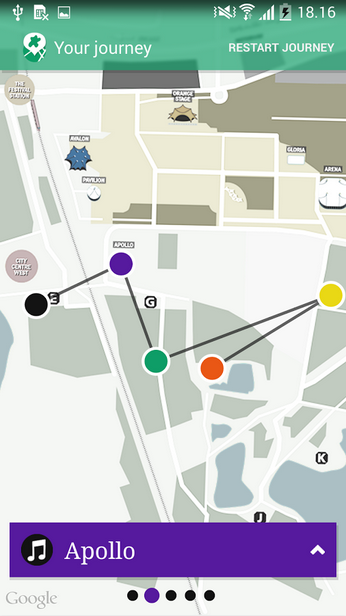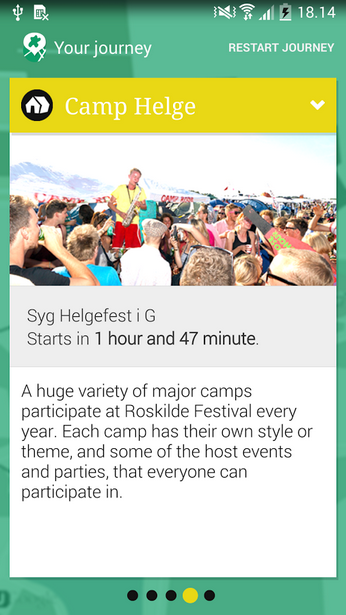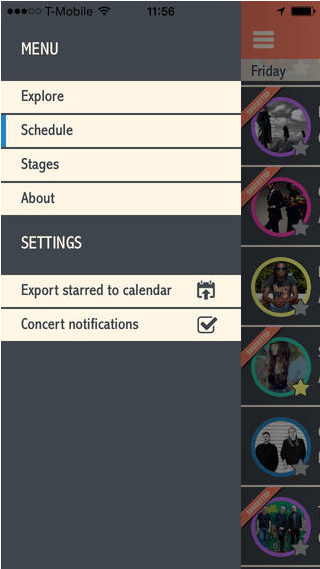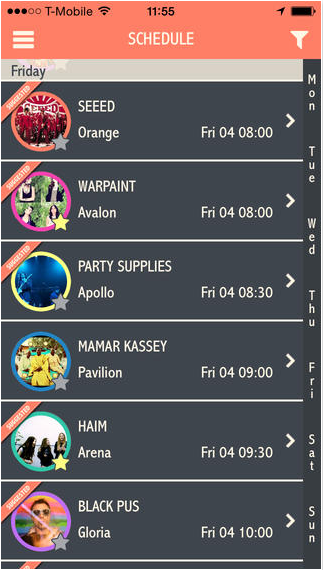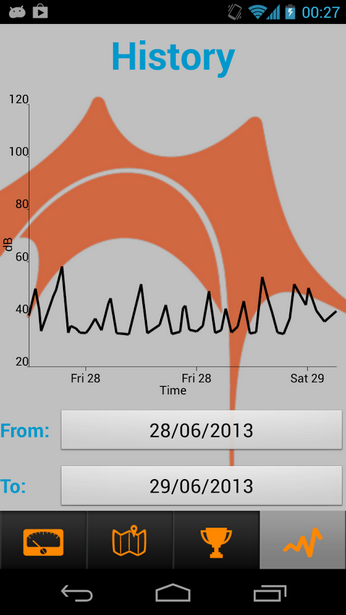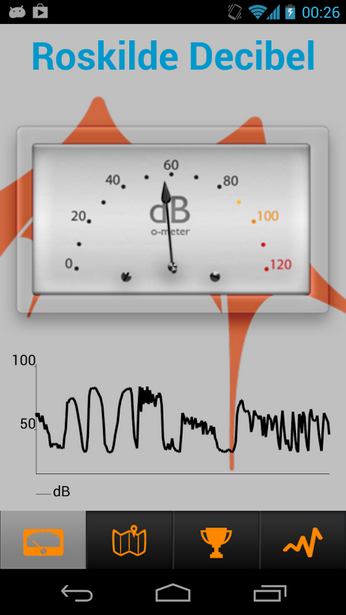Today my PhD student Simon Kamronn successfully defended his PhD thesis ”Monitoring and modelling of behavioral changes using smartphone and wearable sensing”. Congratulations, Simon!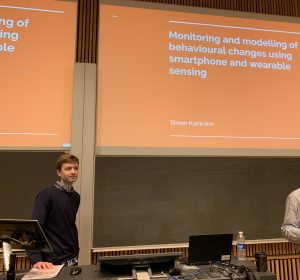
Author Archives: Jakob Eg Larsen
Quantified Self 2018 Conference
I participated in the QS2018 conference Sept 22-23 in Portland – two very intense days as (again!) I had committed to do too many different talks and sessions during the conference.
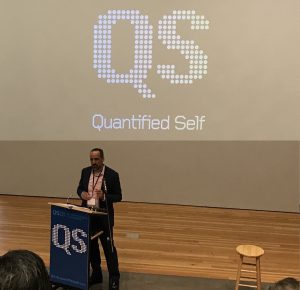
This included a breakout session on subjective experience tracking and a how-to session on building self-tracking instrumentation. In addition I did a personal show and tell talk and was invited to the panel in the closing plenary session.
In particular I enjoyed the opening of the QS18 conference by Allen Neuringer, professor of psychology saying “I have waited 50 years to be here”.
Quantified Self 2017 Conference
I participated in the QS2017 conference June 17-18 in Amsterdam – two very intense days as I had committed to do four different talks/breakouts during the conference.
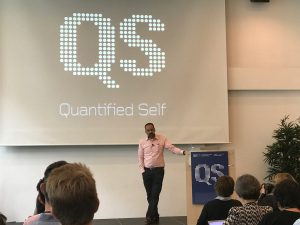
Together with Quantified Self Institute we did a breakout on QS research. Thomas Blomseth Christiansen and I organized a workshop/breakout session on Tracking Subjective Experience. I organized another breakout session about food tracking, which included a group of people with type 1 diabetes. And finally I did a show and tell talk about longitudinal tracking of sleep and resting heart rate.
SAA 2017 Conference
Had the opportunity to participate in SAA 2017 – the 5th biennial conference of the society for ambulatory assessment and present our work on Instrumenting ecological momentary assessment with a wearable smartbutton as part of a session on Methods and Protocols.
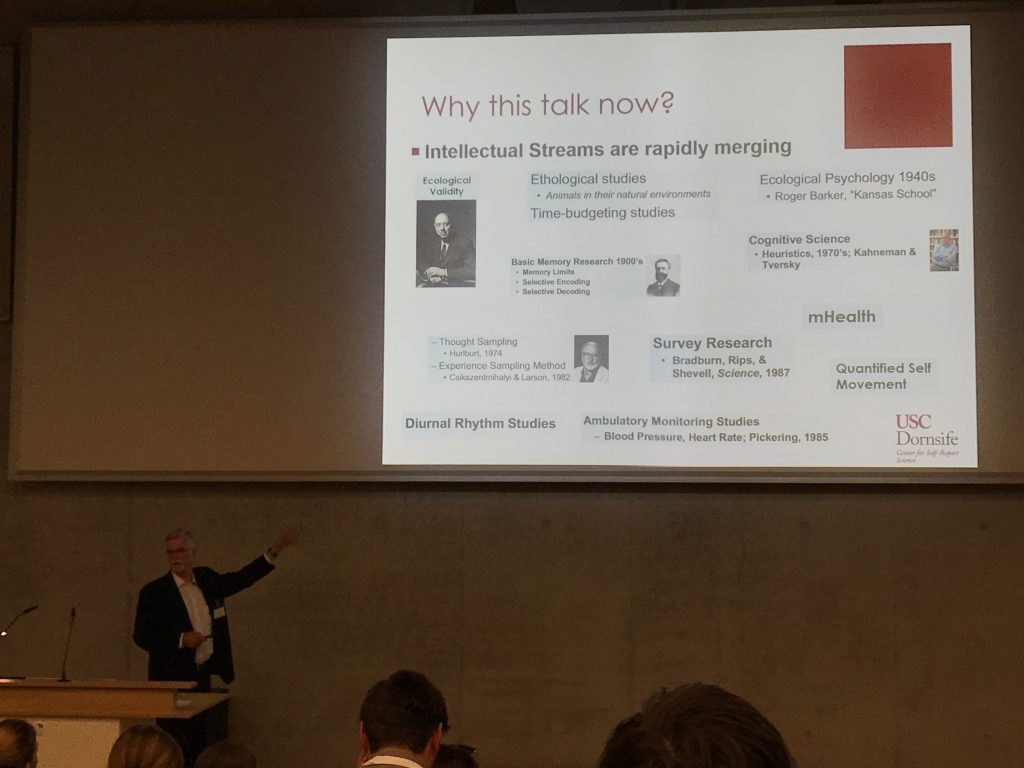
Moreover I had the opportunity to attend the keynote by Arthur Stone on “Challenges remaining for the field of real-time data capture”, including his shout out to the “Quantified Self Movement”, as he phrased it. During the Q&A I asked him to elaborate on the role of QS from his perspective, to which he responded: I think it’s really interesting that people are becoming so interested in monitoring themselves and get feedback about themselves. To me it seems like again maybe we should think about what they are doing and what they are saying and talk to them. And perhaps talk about the hypothesis generation, because I don’t see them doing the kind of stricter scientific research that we need to do in order to confirm the associations. But I think, I mean it’s great that people are doing this and are interested in this. It’s a little worrisome that the big corporations are getting into this – I mean maybe it’s worrisome, maybe it’s great. I’m not sure. Something is happening now and I don’t know quite how this is all going to turn out.
Keynote at Quantified Self Institute
I was invited to give a keynote at the Quantified Self Institute at Hanze University of Applied Science. My talk was entitled (Repurposing) self-tracking tools to obtain insights, where I discussed some of the practices observed among the experienced self-trackers in the Quantified Self Community over the years.
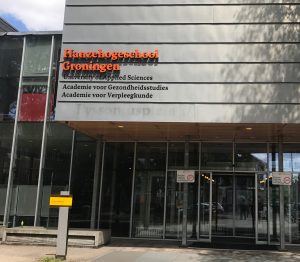
Pervasive Health 2017
I participated in the Pervasive Health 2017 conference (11th EAI International Conference on Pervasive Computing Technologies for Healthcare) and the workshop on Leveraging Patient-Generated Data for Collaborative Decision Making in Healthcare. Here I presented our work on Fostering Bilateral Patient-Clinician Engagement in Active Self-Tracking of Subjective Experience. 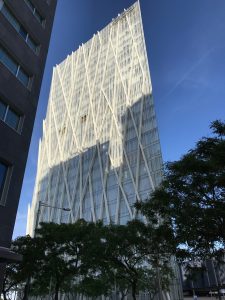
Poster presentation at CHI2017
My PhD student Benjamin Johansen presented his work on “Personalized Hearing Aids based on behavioral patterns” at the CHI2017 conference in Denver. There is a poster and a short paper.
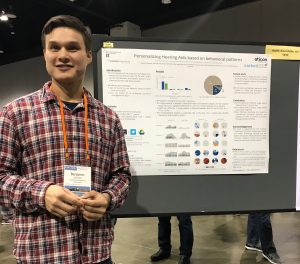
QS Copenhagen Meetup #15
We had the QS Copenhagen Meetup #15 with talks on continuous glucose tracking, tracking of running to achieve negative split, sleep and resting heart rate tracking, and a discussion about designing an N=1 experiment.
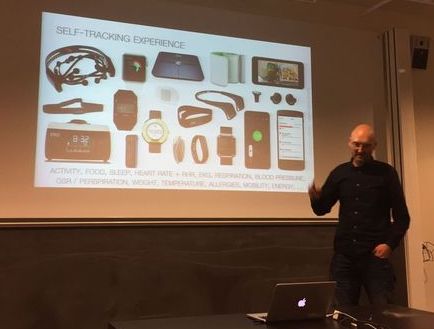
Per Bækgaard defended his PhD thesis
Today my PhD student Per Bækgaard successfully defended his PhD thesis ”Enhancing User Experience in Next Generation Mobile Devices Using Eye Tracking as a Biometric Sensor”. Congratulations, Per!
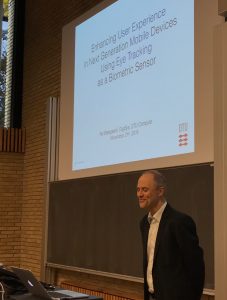
Andrea Cuttone defended his PhD thesis
Today my PhD student Andrea Cuttone successfully defended his PhD thesis “Data Mining and Visualization of Large Human Behavior Data Sets”. Congratulations, Andrea!
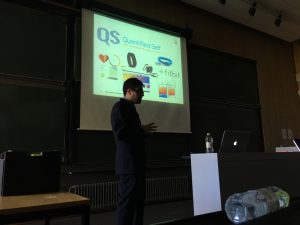
EURO Tech meeting in Bruxelles
We got invited to showcase the work on the smartphone brain scanner as part of a EURO Tech meeting in Bruxelles. Yet again we got a lot of enthusiastic response on our work.
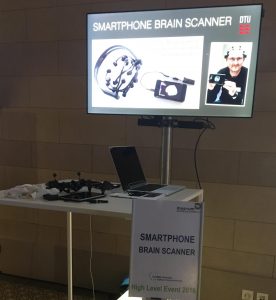
Benjamin Johansen new PhD student
Benjamin Johansen joins the lab as a PhD student in the Cognitive Systems Section at DTU Compute under my supervision and co-supervised by Michael Kai Petersen. Benjamin will work on personalization and enhancement of the user experience in the hearing aid fitting process. The project is part of an ongoing research collaboration with Oticon and is in part funded by The Oticon Foundation. The working title of the PhD project is Personalizing hearing care and enhancing user experience by adapting devices to the changing mobile context. Welcome, Benjamin!
Camilla Jensen defended her PhD thesis
Today my PhD student Camilla B.F. Jensen successfully defended her PhD thesis “Design of Cognitive Interfaces for Personal Informatics Feedback”. Congratulations, Camilla!
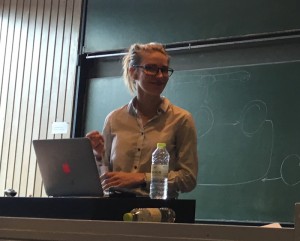
Quantified Self Workshop @ UbiComp15
I co-organized a workshop at UbiComp’15 on Quantified Self titled: New Frontiers of Quantified Self: Finding new ways for engaging users in collecting and using personal data. The proceedings from the workshop is available at the ACM Digital Library.

IDA Future Talk – Human with Machine
I got invited to talk about Man Machine Interaction at the new established IDA Future Talks. In my talk I touched upon the exponential development of machines and how computers have moved closer and onto/into our bodies to monitor our behavior and interactions, exemplified by the phenomenon quantified self. Being a future talk I specifically addressed the potential of this technology in future improvements in health and well-being.
Although most of the terminology used at the IDA Future Talks was in English the talks were in Danish. The title of My talk was Human with Machine (in Danish: Menneske med maskine).
Simon Due Kamronn new PhD student
Simon Due Kamronn joins the lab as a PhD student in the Cognitive Systems Section at DTU Compute under my supervision and co-supervised by Lars Kai Hansen. Simon will work on 24/7 monitoring of physical activity and energy expenditure in everyday life activities using smartphones and wearable sensors. The project is part of an ongoing research project in collaboration with University of Copenhagen in part funded by TrygFonden. The working title of the PhD project is Monitoring and Modeling of Behavioural Changes using Smartphone and Wearable Sensing. Welcome, Simon!
Personal Informatics at UbiComp2014
At the 2014 ACM International Joint Conference on Pervasive and Ubiquitous Computing (UbiComp 2014) we had the 5th international workshop on Personal Informatics.
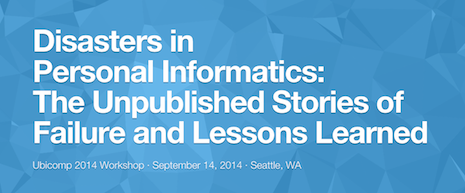 This year the workshop was framed as the “Disasters in Personal Informatics: The Unpublished Stories of Failure and Lessons Learned”. The idea was to stimulate a discussion on the challenges involved in conducting research in personal informatics. Nine interesting papers were discussed in three themes as part of the workshop program: Personal Informatics in Life, Data Collection and Quality, and Engagement in Longitudinal Studies.
This year the workshop was framed as the “Disasters in Personal Informatics: The Unpublished Stories of Failure and Lessons Learned”. The idea was to stimulate a discussion on the challenges involved in conducting research in personal informatics. Nine interesting papers were discussed in three themes as part of the workshop program: Personal Informatics in Life, Data Collection and Quality, and Engagement in Longitudinal Studies.
My PhD student Andrea Cuttone and I presented our work: “The Long Tail Issue in Large Scale Deployment of Personal Informatics” discussing issues in carrying out Personal Informatics research as part of our large-scale SensibleDTU study.
Arek Stopczynski defended his PhD thesis
Today my PhD student Arek Stopczynski successfully defended his PhD thesis ‘Mobile Phones as Cognitive Systems‘. Congratulations, Arek!
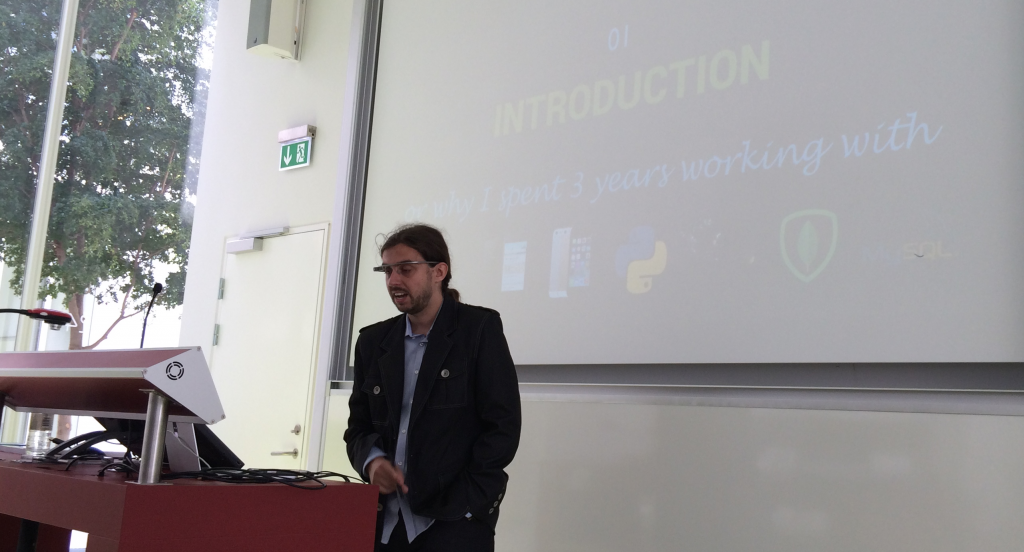
More festival apps – Roskilde Festival 2014
Like previous years current and former DTU Compute students have created mobile apps for Roskilde Festival as part of the partnership between DTU and Roskilde Festival and our research activities. The apps this year include:
Roskilde Explorer
The app lets you know, what the festival has to offer right here, right now.
Roskilde Festival Music Suggest
The app has been the Official Roskilde Labs app contest winner in 2013 and 2014. It help guests at Roskilde Festival explore artists playing at the festival and provide suggestions based on sources including Facebook, iTunes, and last.fm.
Roskilde Decibel 2014
The app allows you to visualize and track how much noise you are exposed to. You can get immediate measurement of the current sound level in decibel and noise levels directly on the Roskilde map. You can get achievements too by measuring sound levels around Roskilde’s stages or at specific times of the day.
ESOF 2014 – Science in the City
This week we are showcasing our research in Quantified Self and Network Science at the EuroScience Open Forum 2014 (ESOF) Science in the City festival. Our tagline is: Which factors motivate you to take more steps?
With smartphones and new wearable devices it is possible to measure many different aspects of our lives, including exercising, sleep and mood. But the question is if this technology can change our habits?
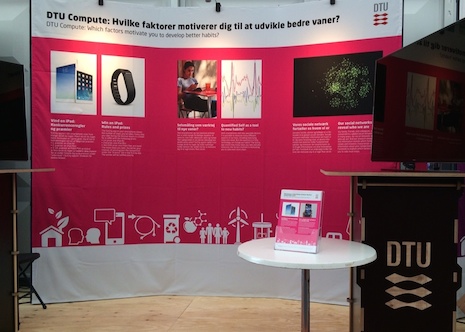
Our team from DTU Compute uses Science in the City as the foundation for a scientific study – and we use the official SciCity app to do this. We have included a step counter feature in the app and use the app to study the factors that motivate to take more steps. Our study is based on the two exciting scientific fields: Quantified Self and Network Science.
Quantified Self addressing how self-monitoring (for instance apps on smartphones or wearable gadgets) influence our self-perception and Network Science studying the mathematics that describes structure and dynamics in our social networks. Via family, friends, and colleagues, we’re connected to a global social network. In many ways, our social networks show who we are. And our research shows that this information reveals which fundamental values and interests characterize us. We use information about the connections on, e.g. Facebook to explore which factors motivate the user to take more steps.

